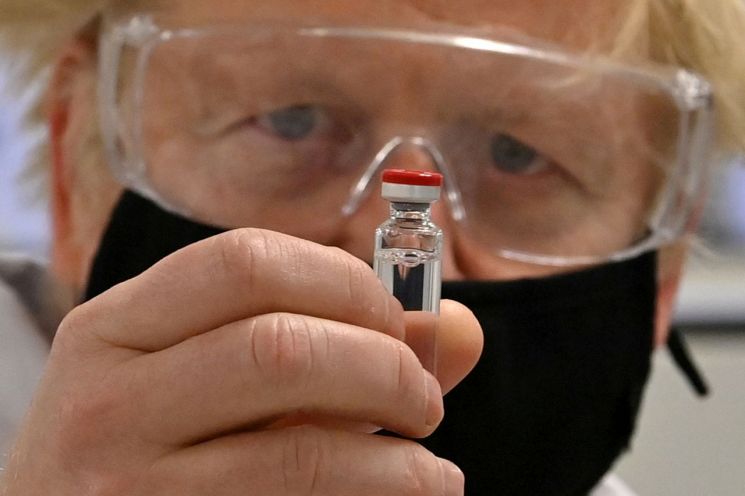Policy of “maximum vaccination expansion” for the spread of mutant virus
AstraZeneca vaccine efficacy is expected to increase
![[이미지출처=로이터연합뉴스]](https://i0.wp.com/cphoto.asiae.co.kr/listimglink/1/2020123110182694070_1609377505.jpg?w=560&ssl=1)
[이미지출처=로이터연합뉴스]
[아시아경제 이현우 기자] It is attracting international attention as the UK government announced that it will change the vaccination interval from 4 weeks to 12 weeks in order to further expand vaccination due to the outbreak of a novel coronavirus (Corona 19) variant virus. As the spread of the medical system has intensified to the extent that the medical system has exceeded its limit, it is interpreted as an unavoidable hurdle. In addition to the AstraZeneca vaccine, some are expected to be a way to extend the efficacy period of other vaccines.
According to foreign media such as the New York Times (NYT), on the 30th (local time), the British government announced that the interval between receiving the second dose after the first dose of the Corona 19 vaccine was delayed from 4 weeks to 12 weeks. The British government explained that this would increase the number of primary inoculations that much. As the winter season enters, the number of new corona19 confirmed in the UK is the highest of 40,000 to 50,000 people a day, and it is interpreted as a hurry to take into account the emergency situation that spreads to the mutant virus. In the UK, as the number of confirmed cases exploded, especially from Christmas, there is a growing concern that the medical system has exceeded its limit.
NYT reported on the change in the policy of the British government, “The UK has moved away from the vaccination strategy adopted by other countries in the world,” and “an experiment that will speed up vaccination, which will have an uncertain but profound effect, has begun.” If the number of targets for the first dose is increased instead of delaying the second dose, the UK government expects that the number of targets for the vaccine will be more than doubled.
![[이미지출처=로이터연합뉴스]](https://i0.wp.com/cphoto.asiae.co.kr/listimglink/1/2020123114092694559_1609391366.jpg?w=560&ssl=1)
[이미지출처=로이터연합뉴스]
Michael Mina, a Harvard epidemic scholar, said, “It’s a question of whether to inoculate more people within a set time frame or to keep the vaccines in the refrigerator for two doses.” “The British way will save more lives.”
However, the objection is also difficult. First of all, there is almost no research data on the duration of the efficacy of the first vaccine. At a press conference on the same day, the British government explained its policy to expand the vaccination interval and introduced the study results, saying, “When the vaccination interval of the AstraZeneca vaccine was increased to 12 weeks, the immunity effect increased up to 80%.” For this reason, some interpreted it as announcing the revision of the vaccination policy along with the research results on the day the British government approved the AstraZeneca vaccine for policy amendment.
However, the current controversy over immune effects such as the efficacy of low-dose administration of AstraZeneca vaccine has not been resolved. AstraZeneca vaccine was administered on the 23rd of last month by reducing the dose of the first vaccine by half from the standard when the results of the clinical trial were announced. Came out. On that day, the UK Medicines and Health Care Products Regulatory Agency (MHRA) also did not approve the inoculation method, saying that the efficacy of low-dose medication has not yet been proven through a complete analysis.
Reporter Lee Hyun-woo [email protected]
